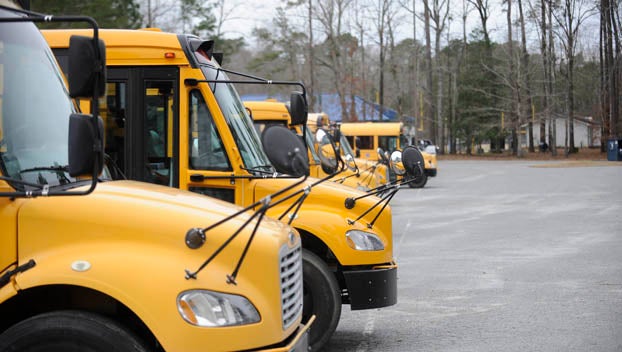Summer school, reading improvement bills pass NC legislature
Published 6:12 pm Thursday, April 1, 2021

- (Brandon Tester / Washington Daily News)
|
Getting your Trinity Audio player ready...
|
RALEIGH (AP) — The North Carolina General Assembly finalized on Thursday a pair of public education measures designed to get more intensive help to children learning to read and to those who have fallen behind during the COVID-19 pandemic.
Before going home for a spring recess, the GOP-controlled House and Senate approved both bills by overwhelming margins. They now go to Democratic Gov. Roy Cooper. A statement from Cooper’s office didn’t directly address whether he’d sign the measures, which have received praise from other Democrats. Federal COVID-19 relief funds will help defray some of the cost of the bills’ implementation.
One bill pushed by House Speaker Tim Moore would require all school districts to offer at least six weeks of summer school designed to help K-12 students who’ve failed to flourish with virtual learning since the coronavirus forced remote learning in March 2020.
While schools are now turning back to in-person instruction, lawmakers say high school students are in danger of not graduating and younger students are falling short in basic skills. It’s optional for parents to send their children.
“This legislation will give North Carolina families an option for their children to grow and learn during this summer,” Moore said in a news release.
The other measure marks Senate leader Phil Berger’s latest effort to get more third graders reading proficiently — what educators call a key threshold to improve their chances for success in the K-12 schools and beyond. A 2019 bill that Berger pushed to address shortcomings in the current “Read to Achieve” program — something he also championed in 2013 — was vetoed by Cooper. The governor said at the time that the bill didn’t fully address the program’s problems.
The latest version of the “Excellent Schools Act” goes well beyond the 2019 measure, particularly with its mandate that elementary school teachers be trained in scientific methods of reading instruction that emphasize phonics, vocabulary and spelling.
College education programs also would include the so-called Science of Reading in student-teacher curricula, and prekindergarten programs for at-risk 4-year-olds would place more emphasis on reading instruction and assessments to determine readiness for kindergarten. An Early Literacy Program would be established within the Department of Public Instruction, and local school districts would have to turn in literacy intervention plans starting next year.
As with the 2019 legislation, early-grade students struggling with reading also would receive individualized improvement plans, and more online reading resources would be available for parents. Summer reading camps would continue in school districts.
Teachers who agreed to work in summer reading camps or this summer’s COVID-19 recovery programs would get signing and performance bonuses.
Berger attributed the broad support for his bill in part to successful reading intervention in Mississippi and other states, as well as recent work by the Department of Public Instruction, the State Board of Education and the University of North Carolina system.
“It certainly appears that we’ve always had the same goal: Everybody wants to make sure kids get to read,” Berger told reporters. “I think there’s now a strong consensus on how we should go about that.”
The final votes for both bills were unanimous in both chambers, except for Berger’s bill in the House, where five Democrats voted no. One of the five, Rep. Graig Meyer of Orange County, questioned the efficacy of the bonus program and why a company already has been designated in a previous law as the firm that will provide literacy training to teachers over the next two years.
Cooper press secretary Dory MacMillan said in an emailed statement that early literacy is a priority for the governor, and “he knows real success will require changes not only in the way students learn to read but in how much we invest in the educators who are doing the teaching.”





